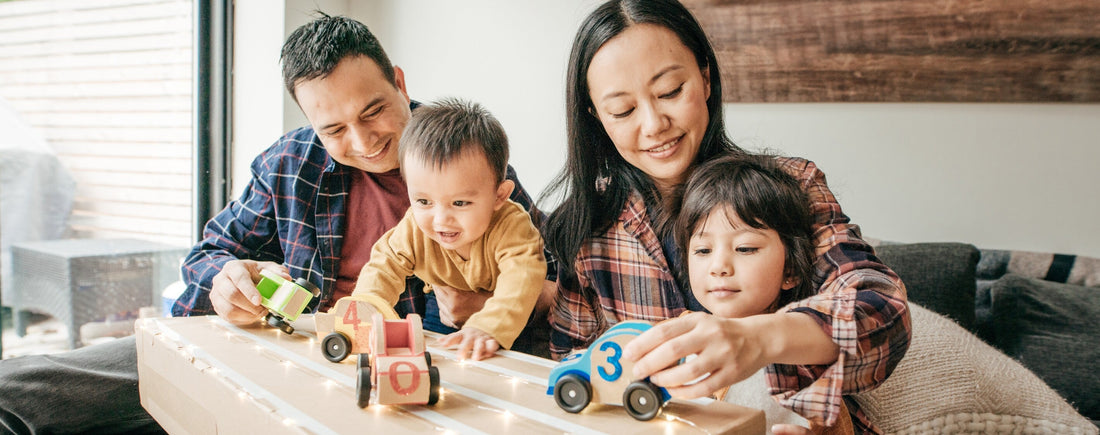Dismantled routines, unpredictable futures, erosion of social networks, and loss of control over their lives have left many quarantined children struggling to regain mental equilibrium. One research study found that as many as 30 percent of children who were isolated during pandemics met the clinical criteria for post-traumatic stress disorder. As the weeks of stay-at-home orders continue to mount, many parents are questioning whether the effects of social distancing will have long-term consequences for their children’s emotional development.
The following strategies can lessen the anxiety and disconnection that many children may be experiencing during this time.
While teenagers in particular are notorious for hiding away in their rooms, this is a critical time to stay connected to them. Don’t expect them to join your world. Instead, join theirs. Play a video game, watch a movie, create a facial scrub, learn some hip hop moves, make a TikTok video, order drinks from a drive-through Starbucks, or have your child teach you all the texting acronyms they know. Sure, these ideas might be a bit out of the norm for you but it is far likelier that you will make the effort to step out of your comfort zone than your child will theirs.
There has never been a better time to get creative. With practically the whole world taking their offerings online, there is no limit to what your child can explore. From sacred dance and languages to STEM education and art workshops, the sky is the limit. Ask your child to identify something that they would like to explore during the quarantine. Then set about finding a group or class to fuel the creative genius.
According to one research study, “People who use the natural environment for physical activity at least once per week have about half the risk of poor mental health compared with those who do not do so; and each extra weekly use of the natural environment for physical activity reduces the risk of poor mental health by a further 6%.” Encourage your child to get outside and get moving.
Quarantine is stressful for kids and there is no need to add to an already challenging situation. Each time you are tempted to find fault with a noncritical behavior, find something to praise instead. It will make you and your child feel better.
There is a Chinese proverb that says, “If you want happiness for an hour, take a nap. If you want happiness for a day, go fishing. If you want happiness for a year, inherit a fortune. If you want happiness for a lifetime, help someone else.” While it might seem tricky to do something nice for others when you’re not supposed to get within six feet of them, there are many ways that you can make it work.
Quarantine is full of its own unique blessings and challenges. By incorporating the above steps into your child’s day you will increase the opportunities for both of you to tap into the former while minimizing the latter. You might just look back and remember this period as one of the beautiful and lasting connections.
*Editor’s Note: The information in this article is intended for your educational use only and is not a substitute for professional medical advice, diagnosis, or treatment. Always seek the advice of your physician or other qualified health providers with any questions you may have regarding a medical condition and before undertaking any diet, supplement, fitness, or other health programs.
Become your best self with The Quest: Spiritual Solutions for Creating a Life You Love, our online course led by Deepak Chopra and Martha Beck. Learn More.
The following strategies can lessen the anxiety and disconnection that many children may be experiencing during this time.
1. Focus on Controllable Factors
The sheer volume of factors outside of your child’s control may contribute to their growing sense of anxiety. They have little influence over when school will resume, how semester grades will be calculated, when they will see their friends again, or how COVID-19 will affect their college options. Instead of dwelling on factors over which they have no control, encourage your child to become a master of the things they can control including:- How much effort they put into virtual classes
- How frequently they connect with their friends online
- What they eat
- Their daily schedule
- Whether they exercise
- What they read
2. Stay Connected
While teenagers in particular are notorious for hiding away in their rooms, this is a critical time to stay connected to them. Don’t expect them to join your world. Instead, join theirs. Play a video game, watch a movie, create a facial scrub, learn some hip hop moves, make a TikTok video, order drinks from a drive-through Starbucks, or have your child teach you all the texting acronyms they know. Sure, these ideas might be a bit out of the norm for you but it is far likelier that you will make the effort to step out of your comfort zone than your child will theirs.
3. Laugh Together
“If we couldn’t laugh, we would all go insane.” American poet Robert Frost had no idea how accurate his words would be when it comes to being quarantined with children. Laughter has been touted as the greatest medicine. It lifts heaviness, lightens darkness, and dispels frustrations. Look for opportunities to chuckle with your child each day. Make jokes, watch comedy, and never miss a chance to laugh at yourself. Joyful behavior is more contagious than a virus and will spread like wildfire once you strike the match.4. Encourage Creativity
There has never been a better time to get creative. With practically the whole world taking their offerings online, there is no limit to what your child can explore. From sacred dance and languages to STEM education and art workshops, the sky is the limit. Ask your child to identify something that they would like to explore during the quarantine. Then set about finding a group or class to fuel the creative genius.
5. Exercise Outdoors
It is no secret that nature is an antidote to stress, anxiety, and depression. Yet, in a time of quarantine, it can become even more valuable. Seeing the same four walls day in and day out may begin to feel like a prison to the adventurous hearts of children. Stepping into the great outdoors for a hike, bike ride, ocean swim, or run can significantly decrease the risk of mental health complications.According to one research study, “People who use the natural environment for physical activity at least once per week have about half the risk of poor mental health compared with those who do not do so; and each extra weekly use of the natural environment for physical activity reduces the risk of poor mental health by a further 6%.” Encourage your child to get outside and get moving.
6. Let the Little Things Go
Being home with your children day in and day out will likely highlight areas in which you would like to help them improve. Perhaps your children leave their dishes in the sink, talk with their mouths full, regularly forget their chores, dress in the same clothes all week, or close doors aggressively. While it is perfectly acceptable to let them know your expectations in critical areas, this is not the best time to harp on less important details. If a behavior is not impacting someone’s work, education, or well-being, save it for another time.Quarantine is stressful for kids and there is no need to add to an already challenging situation. Each time you are tempted to find fault with a noncritical behavior, find something to praise instead. It will make you and your child feel better.
7. Stick to a Routine
One of the things that made pre-quarantine days a bit easier to navigate was routine. Your child didn’t have to constantly decide what to do next. Research suggests that the effort of perpetual decision-making, even between pleasurable choices, depletes self-regulation, and willpower. Over time, the will power “muscle” becomes fatigued, leading to lowered inhibitions and self-control. Taking five minutes in the evening to create a general routine for the following day can increase composure, motivation, and positivity for both of you.8. Do Something for Others
There is a Chinese proverb that says, “If you want happiness for an hour, take a nap. If you want happiness for a day, go fishing. If you want happiness for a year, inherit a fortune. If you want happiness for a lifetime, help someone else.” While it might seem tricky to do something nice for others when you’re not supposed to get within six feet of them, there are many ways that you can make it work.
- Drop a letter in the mail to a relative.
- Offer to shop for an elderly neighbor.
- Leave freshly picked flowers on your neighbor’s porch.
- Donate to a local food bank.
- Send an email thanking a teacher.
Quarantine is full of its own unique blessings and challenges. By incorporating the above steps into your child’s day you will increase the opportunities for both of you to tap into the former while minimizing the latter. You might just look back and remember this period as one of the beautiful and lasting connections.
*Editor’s Note: The information in this article is intended for your educational use only and is not a substitute for professional medical advice, diagnosis, or treatment. Always seek the advice of your physician or other qualified health providers with any questions you may have regarding a medical condition and before undertaking any diet, supplement, fitness, or other health programs.
Become your best self with The Quest: Spiritual Solutions for Creating a Life You Love, our online course led by Deepak Chopra and Martha Beck. Learn More.






















